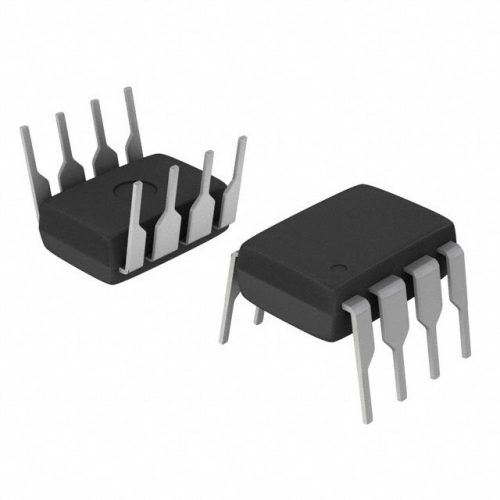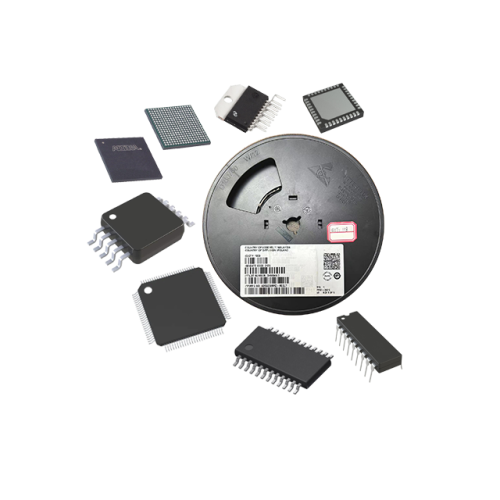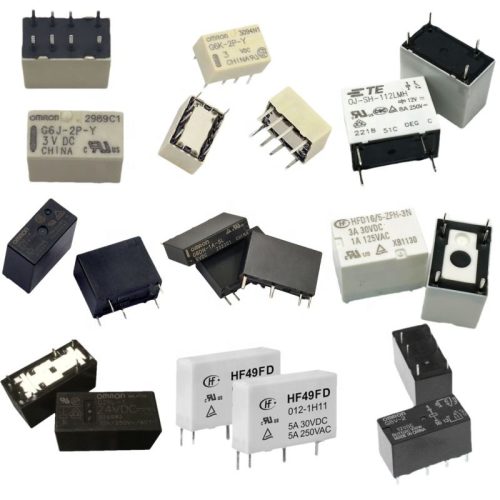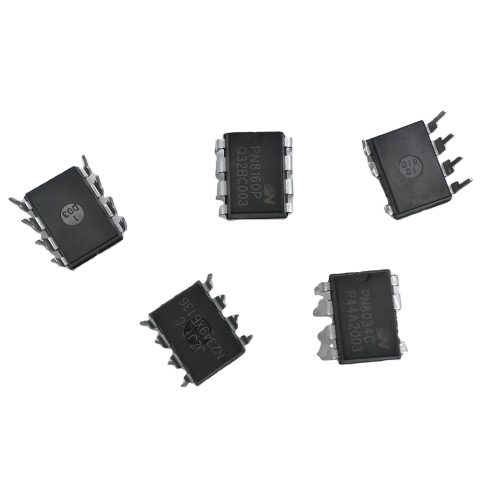High-Precision Instrumentation Amplifier for Industrial Applications
O INA118 is a high-performance instrumentation amplifier designed by Texas Instruments (TI), engineered to deliver precision, low power consumption, and high common-mode rejection in a compact 8-pin package. This device is ideal for applications requiring accurate, low-level signal amplification in noisy environments. With its low offset voltage, low bias current, and wide supply range, it is a preferred choice for engineers and system designers in industrial, medical, and data acquisition systems.
Technical Overview of the INA118 Instrumentation Amplifier
The INA118 is a monolithic instrumentation amplifier offering excellent accuracy and stability. It features a single external resistor to set the gain, making it highly flexible for a wide range of applications. The device operates over a wide supply voltage range and is optimized for single-supply operation, making it suitable for battery-powered and portable systems.
🔥 Produtos mais vendidos

TLC555 Timer IC - Timer de Precisão da Texas Instruments em Pacote PDIP-8

Amplificador operacional de entrada JFET de baixo ruído TL081 da Texas Instruments - Pacote DIP-8

Controlador PWM de modo de corrente UC3842 da Texas Instruments - Pacote DIP-8

Texas Instruments LM2937 Regulador de Tensão Pacote TO-220 - Baixa Queda Linear
Its low input bias current and low offset voltage ensure minimal signal distortion, while the high common-mode rejection ratio (CMRR) enhances performance in electrically noisy environments. The INA118 is fully specified for operation from –40°C to +85°C, ensuring reliable performance in harsh industrial conditions.
Caraterísticas principais
- Low offset voltage: 50 µV (max)
- Low input bias current: 2 nA (typ)
- High CMRR: 120 dB (min at G ≥ 10)
- Low power consumption: 350 µA (typ)
- Wide supply range: ±2.25 V to ±18 V
- Gain set with a single external resistor
- Unity gain stable
- 8-pin SOIC and DIP packages
Technical Specifications Table
| Parâmetro | Valor | Unidade |
|---|---|---|
| Tensão de desvio de entrada (máx.) | 50 | µV |
| Input Bias Current (Typ) | 2 | nA |
| Common-Mode Rejection Ratio (Min, G ≥ 10) | 120 | dB |
| Gama de tensão de alimentação | ±2.25 to ±18 | V |
| Quiescent Current (Typ) | 350 | µA |
| Gain Range | 1 to 10,000 | V/V |
| Gama de temperaturas de funcionamento | –40 to +85 | °C |
| Opções de pacote | 8-Pin SOIC, DIP | – |
Why Choose This Instrumentation Amplifier Over Alternatives?
Compared to typical alternatives in the market, this instrumentation amplifier offers a unique combination of precision, low power, and ease of use. Many competing amplifiers require complex gain-setting configurations or consume significantly more power. The INA118 simplifies design with a single external resistor to set gain, reducing BOM cost and design complexity.
🌟 Produtos em destaque

"Comprar MAX9312ECJ+ Comparador de Tensão de Precisão em Pacote DIP para um Desempenho Fiável"

Modelo 0339-671-TLM-E - Pacote TLM-E de alto desempenho para funcionalidade aprimorada

1-1415898-4 Connector Housing, Electrical Wire-to-Board, Receptacle, Packaged

1-1462039-7 Electrical Connector, PCB Mount, Through-Hole, 2-Pin Header Socket
Its ultra-low offset voltage and bias current make it ideal for precision applications where signal integrity is critical. The high CMRR ensures that common-mode noise is effectively rejected, which is essential in industrial environments with high electromagnetic interference (EMI). Additionally, the wide supply voltage range and low quiescent current make it suitable for both high-performance and battery-powered systems.
According to industry experts and engineers, the INA118 is a go-to solution for applications requiring reliable and accurate signal amplification. Its performance has been validated in numerous industrial and medical systems, reinforcing its reputation as a trusted component in the analog signal chain.
📩 Contactar-nos
Typical Applications of the INA118
- Instrumentação médica: ECG, EEG, and other bio-potential measurements
- Controlo de processos industriais: Sensor signal conditioning, pressure and temperature monitoring
- Sistemas de aquisição de dados: High-accuracy analog front ends
- Balanças de pesagem: Load cell signal amplification
- Portable Instrumentation: Battery-powered measurement devices
Sobre a Texas Instruments (TI)
Texas Instruments is a globally recognized leader in analog and embedded processing semiconductor solutions. With decades of innovation and a commitment to quality, TI provides reliable and high-performance components for a wide range of industries including automotive, industrial, medical, and consumer electronics. The INA118 is a testament to TI’s dedication to precision analog design, offering engineers a dependable solution for critical signal amplification tasks.
Perguntas frequentes (FAQ)
1. What makes this instrumentation amplifier suitable for medical applications?
The device features low offset voltage and low input bias current, which are essential for accurately amplifying small bio-signals such as ECG or EEG. Its high CMRR also helps reject noise from external sources, ensuring clean signal acquisition in medical environments.
2. Can this amplifier operate on a single power supply?
Yes, it is optimized for single-supply operation and can function with supply voltages as low as ±2.25 V. This makes it ideal for battery-powered and portable systems where dual supplies are not feasible.
3. How is the gain of the amplifier set?
The gain is set using a single external resistor connected between pins 1 and 8. This simplifies the design process and allows for flexible gain configurations ranging from 1 to 10,000 V/V.
4. What package options are available for this device?
The amplifier is available in standard 8-pin SOIC and DIP packages, making it compatible with both surface-mount and through-hole PCB designs. This flexibility supports







